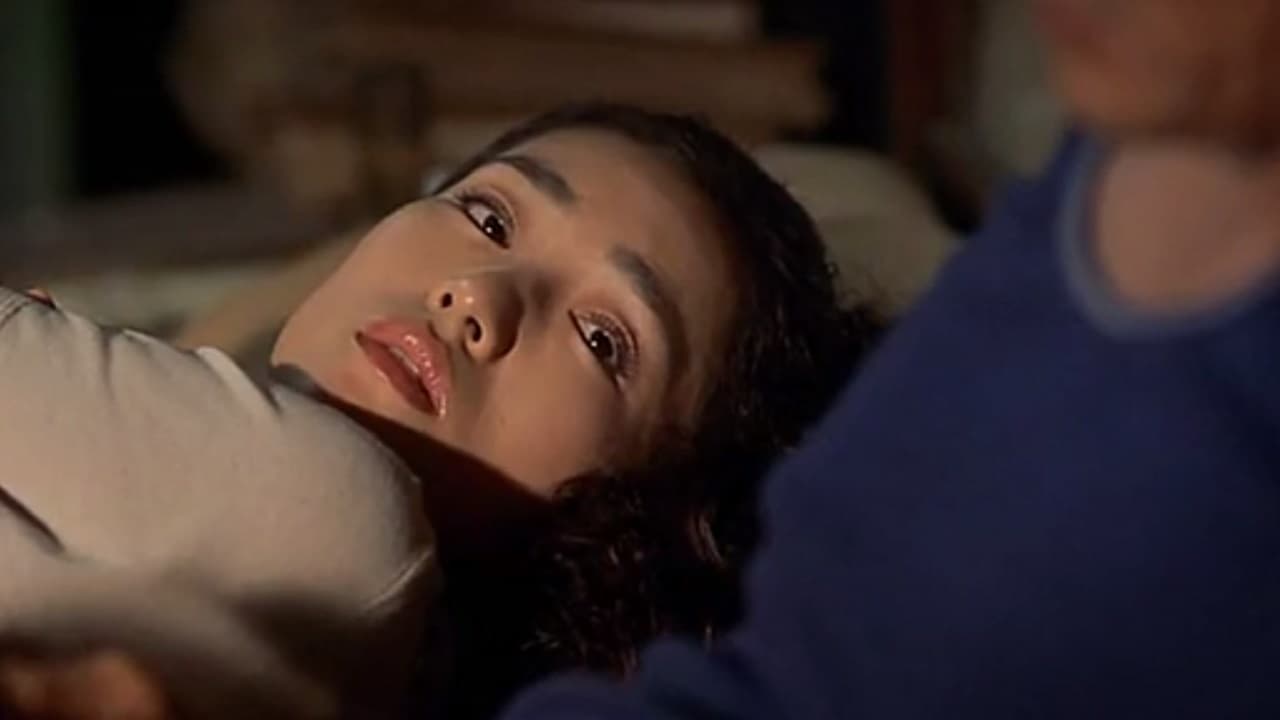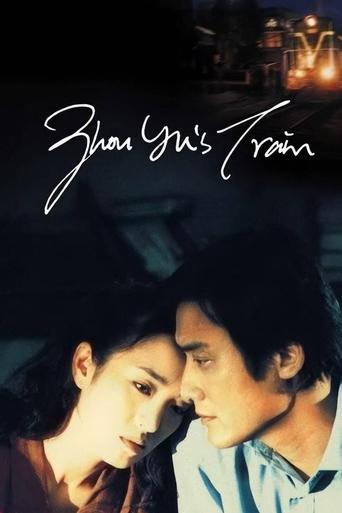

What a waste of my time!!!
... View MoreBrilliant and touching
... View MoreA lot of perfectly good film show their cards early, establish a unique premise and let the audience explore a topic at a leisurely pace, without much in terms of surprise. this film is not one of those films.
... View MoreThis movie feels like it was made purely to piss off people who want good shows
... View MoreThis film tells the story of a woman who is in love with a poet far away, while a vet near her attempts to win her heart."Zhou Yu's Train" is not told in a linear manner, and hence it's super confusing. All the time, I thought there were only three main characters, the woman, the poet and the vet. The story jump back and forth, and it's hard to piece together the fragments to make a coherent story. This is not helped by the slow pace, numerous scenes of train and railway tracks, dragging the film longer than it needs to be. The most confusing thing is the ending, I didn't understand it at all, until I read the message board that says there is in fact a fourth character, also played by Gong Li! The film lost me and my interest completely, and there is no turning back. It would help to understand the story if I watched it again, but I'm not watching it again for sure.
... View MoreBeautiful film with the beautiful Gong Li about a pottery artist who takes the train twice a week to meet with mild mannered poet and the more brazen Vet she crosses path with on the train. If I could tell you more than that I would. This is a confused and confusing film that jumps through time and space with a bit too much abandon. The film is strangely compelling because its well acted and because it is so beautiful to watch. Sequences transpire that are absolutely stunning, but at the same time they play like oblique TV commercials. I like the film on some level even though I know I shouldn't. in all honesty its the sort of thing I'll probably pick up on DVD again since it can be had for around the cost of a rental, and I'd like to see it again to see if I'm daft and whether a wee hours viewing and having to switch vcds made a difference in my opinion.
... View MoreZHOU YU'S TRAIN is the type of film that may require repeat viewing in order for the casual viewer to take in all the thia story has to offer: if you blink -- much like the effect of the quickly passing scenery out the window of any train -- you might miss a plot line, a character moment, or a perspective that would better be explored, as the climax to this evenly and perhaps-too-leisurely-paced romance shows. Zhou Yu (the lovely Gong Li) plays a young painter who falls in love with a shy poet, Chen Ching (played by Tony Leung Ka-Fai). Twice a week, Zhou Yu rides the train to be with him. On the train, however, a humorous veterinarian (played Sun Honglei) sees, approaches, and flirts with her. While she initially resists his desire, she eventually gives in to an indescribable curiosity which forces all of them to examine their various roles in one another's lives. While one could hardly argue with the notion that there are parts of TRAIN that appear uneven and, at least, forced, the film still manages to deliver a perspective worth a single view: who does Zhou Yu love and why? Torn between these two men for wildly conflicting reasons, she can't make sense of her dilemma. Instead of running from one of them, she inevitably chooses aspects of both for her affection, but this choice only forces her further and further into confusion.As a result, TRAIN explores more than one budding relationship, making the film as uneven as it is unpredictable. In fact, one could make the argument that what truly is transpiring here cannot be fully understood and appreciated until the film's final few moments .. but even then the viewer is left with many unanswered questions. Is that the message of the film, that life brings more questions than answers? Or is it merely a comment on how Zhou Yu chose to live her life? Or is it something even more?Regardless, what is clear is Zhou's desire to seek the answers to questions of the various loves in her life (two men, friendship, art, etc.), and the narrative clearly appears to be a device through which an exploration of the female mind and heart is undertaken. Whether you reach a destination is left entirely up to the viewer. Of course, the best scenery is Gong Li. She plays even utter confusion with beautiful conviction. If you're a fan of her work, then TRAIN is definitely for you.
... View MoreLi Gong, better known as Gong Li in the West, stars in this taut, probing but occasionally confusing love story set in today's China. Extraordinarily beautiful and also very accomplished as an actress, Gong Li is on a hiatus from historical spectacles and films with a threatening, for the government, political subtext. I doubt any cultural satrap was put out by "Zhou Yu's Train."Zhou Yu paints bucolic and traditional scenes on cheap porcelain before they're finished and sent out to the world's Chinatowns or Chinese cities for sale to tourists. She's talented but so are all the other women in her shop. Great art this ain't.Zhou Yu regularly takes the train to another city where her not brimming with self-confidence poet boyfriend, Chen Qing, lives. Chen is played by Tony Leung Kafai. On the train she meets veterinarian Zhang Quiang, Hanglei Sun. He pursues her and a triangle develops, not an original one at that.Director Zhou Sun has Zhou Yu torn between a poet whose so far failed efforts at recognition she wishes to reinvigorate and advance and a country farm animal vet, a more lighthearted chap. The train is a metaphor for separation and emotional journeying. The train takes her between worlds, not just stations.A bit confusing, at least with subtitles, is Gong Li's second role as a narrator who appears at various points but who also has a direct relationship, apparently platonic, with Chen. Perhaps it's clearer to those who understand Chinese.While Gong Li has several passionate love scenes, she orgasms without getting undressed, a tired sop to Chinese moral values which impact on directors' freedom. A shower scene shows nothing below her shoulders. Erotic? Actually, very.The highpoint of the movie is Gong Li's total and believable immersion in a role that isn't very out of the ordinary. But her acting makes the audience care about the resolution of her dilemma, one that I suspect many viewers will not like.Tony Leung Kafai and Hanglei Sun turn in fine performances in roles clearly subordinated to Zhou Yu's centrality in the tale.This story would amount to a "B" film if populated by Americans living in the rural Midwest. But as a look at changing mores in China it justifies a7/10.
... View More